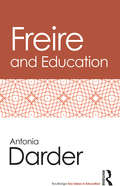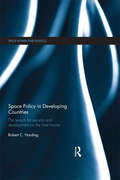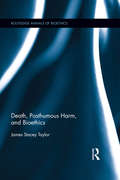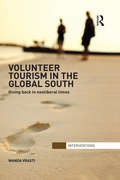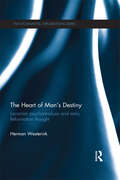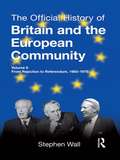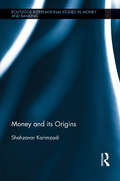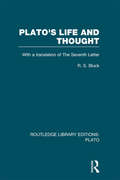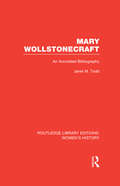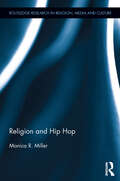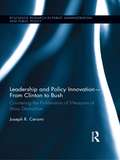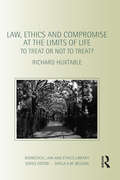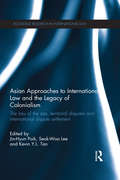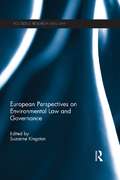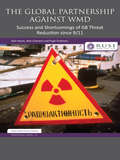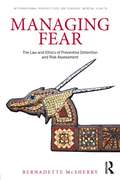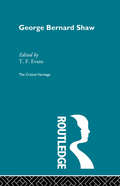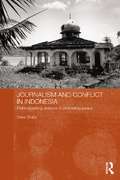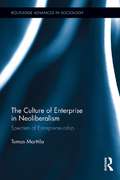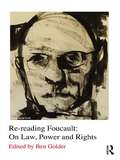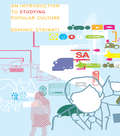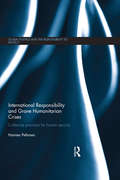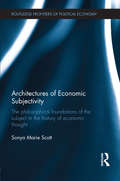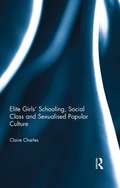Special Collections
Benetech’s Global Certified Accessible Titles
Description: Benetech’s GCA program is the first independent third-party EPUB certification to verify ebook accessibility. By creating content that is born accessible, publishers can meet the needs of all readers. Learn more: https://bornaccessible.benetech.org/
- Table View
- List View
Freire and Education
by Antonia DarderOne of the most influential educational philosophers of our times, Paulo Freire contributed to a revolutionary understanding of education as an empowering and democratizing force in the lives of the disenfranchised. In this deeply personal introduction to the man and his ideas, Antonia Darder reflects on how Freire’s work has illuminated her own life practices and thinking as an educator and activist. Including both personal memories and a never-before published, powerful dialogue with Freire himself, Darder offers a unique "analysis of solidarity," in mind and spirit. A heartfelt look at the ways Freire can still inspire a critically intellectual and socially democratic life, this book is certain to open up his theories in entirely new ways, both to those already familiar with his work and those coming to him for the first time.
Space Policy in Developing Countries
by Robert C. HardingThis book analyses the rationale and history of space programs in countries of the developing world. Space was at one time the sole domain of the wealthiest developed countries. However, the last couple of decades of the twentieth century and the first decade of the twenty-first century have witnessed the number of countries with state-supported space programs blossom. Today, no less than twenty-five developing states, including the rapidly emerging economic powers of Brazil (seventh-largest), China (second-largest), and India (fourth-largest), possess active national space programs with already proven independent launch capability or concrete plans to achieve it soon. This work places these programs within the context of international relations theory and foreign policy analysis. The author categorizes each space program into tiers of development based not only on the level of technology utilised, but on how each fits within the country’s overall national security and/or development policies. The text also places these programs into an historical context, which enables the author to demonstrate the logical thread of continuity in the political rationale for space capabilities generally. This book will be of much interest to students of space power and politics, development studies, strategic studies and international relations in general.
Death, Posthumous Harm, and Bioethics
by James Stacey TaylorDeath, Posthumous Harm, and Bioethics offers a highly distinctive and original approach to the metaphysics of death and applies this approach to contemporary debates in bioethics that address end-of-life and post-mortem issues. Taylor defends the controversial Epicurean view that death is not a harm to the person who dies and the neo-Epicurean thesis that persons cannot be affected by events that occur after their deaths, and hence that posthumous harms (and benefits) are impossible. He then extends this argument by asserting that the dead cannot be wronged, finally presenting a defence of revisionary views concerning posthumous organ procurement.
Volunteer Tourism in the Global South
by Wanda VrastiThis work explores the increasingly popular phenomenon of volunteer tourism in the Global South, paying particular attention to the governmental rationalities and socio-economic conditions that valorise it as a noble and necessary cultural practice. Combining theoretical research with primary data gathered during volunteering programs in Guatemala and Ghana, the author argues that although volunteer tourism may not trigger social change, provide meaningful encounters with difference, or offer professional expertise, as the brochure discourse and the scholarly literature on tourism and hospitality often promises, the formula remains a useful strategy for producing the subjects and social relations neoliberalism requires. Vrasti suggests that the value of volunteer tourism should not to be assessed in terms of the goods and services it delivers to the global poor, but in terms of how well the practice disseminates entrepreneurial styles of feeling and action. Analysing the key effects of volunteer tourism, it is demonstrated that far from being a selfless and history-less rescue act, volunteer tourism is in fact a strategy of power that extends economic rationality, particularly its emphasis on entrepreneurship and competition, to the realm of political subjectivity. Volunteer Tourism in the Global South provides a unique and innovative analysis of the relationship between the political and personal dimensions of volunteer tourism and will be of great interest to scholars and students of international relations, cultural geography, tourism, and development studies.
The Heart of Man's Destiny
by Herman WesterinkCan Luther's writings inform us on the fundamental questions of Freudian psychoanalysis? Does an intellectual filiation between early Reformation thought and psychoanalysis exist? Does Lacanian psychoanalysis offer an instrument for analysing theological writings? In The Heart of Man's Destiny, Herman Westerink offers a new reading of Lacan's seventh seminar, The Ethics of Psychoanalysis. Working from an innovative perspective, this book explores the close relationship between Freudian psychoanalysis and the ideas of the early Reformation. Lacan claimed that to be unaware of the connection between Freud and early Reformation constituted a fundamental misunderstanding of the kind of problems psychoanalysis addresses. Westerink carefully explores these problems and shows that Lacanian psychoanalysis, with its emphasis on desire and law, transgression, and symbolization, draws on fundamental ideas first formulated in the writings of Luther and Calvin. By relating psychoanalysis to early Reformation thought, Westerink not only shows Lacan's writings in a completely new light, but also makes possible an innovative reading of early modern theology itself. The Heart of Man's Destiny breaks new ground by providing both a controversial as well as a fresh perspective on both Luther and Calvin, and on Freudo-Lacanian psychoanalysis. This valuable contribution to the complex character of psychoanalysis will be of interest to analysts and psychotherapists, as well academics and postgraduates with an interest in theology, philosophy and ethics.
The Official History of Britain and the European Community, Vol. II
by Stephen WallThis is the second volume in The Official History of Britain and the European Community, and describes the events from 1963 up until the British referendum on the Common Market in 1975. In 1963, General de Gaulle dashed Prime Minister Macmillan’s hopes of taking Britain into the European Community (the Common Market). When Labour Prime Minister Harold Wilson tried again, de Gaulle again said ‘no’. Six years later, Prime Minister Edward Heath took Britain into the EEC. But by then the country was split and Harold Wilson, to keep the Labour Party from voting to leave, undertook to renegotiate Britain’s membership. When Labour won the 1974 election that renegotiation culminated in the first nationwide referendum ever held in the United Kingdom. The British people voted by two to one to stay in the European Community, but British membership has been controversial ever since. This is the story of why three very different Prime Ministers all concluded that, in the British national interest, there was no viable alternative to joining the Common Market. In the words and documents of the time (those of politicians, diplomats and journalists from Britain, France and Germany) it relives the frustrations, successes and humiliations of British politicians as they wrestled with the most important issue of their generation. It shows, with the authority of the Government papers of the day, where and why today’s European controversy started and why yesterday’s challenges, and the way they were confronted, hold valid lessons for our time. This book will be of much interest to students of British political history, European Union politics, Diplomatic History and International Relations in general.
Money and its Origins
by Shahzavar KarimzadiThe concept of the origin of money has been a topic of interest and discussion to almost all schools of economic thought. However, in spite of minor differences of interpretation, most views share an underlying core principal about the rise and origin of money, implicit in which is the central belief that barter exchange preceded the money economy. This new book offers a challenge to this belief, and argues that it is only by making this challenge that we will be in the position to accurately trace the roots of money. In an ambitious undertaking, the book has gathered and classified the major theories of the origin of money and assessed each at length, before presenting an innovative, alternative theoretical framework for the formation and the rise of money. It blends the objections made against the principal explanations of the origins of money and presents a terminological clarification between what can or cannot be classified as money. This study has wide-ranging implications, in terms of both the operation of the economy and the implementation of monetary policy, and will be of interest to all those working in the areas of finance, monetary economics, economic theory and the history of economic thought.
Plato's Life and Thought
by R S BluckR. S. Bluck’s engaging volume provides an accessible introduction to the thought of Plato. In the first part of the book the author provides an account of the life of the philosopher, from Plato’s early years, through to the Academy, the first visit to Dionysius and the third visit to Syracuse, and finishing with an account of his final years. In the second part contains a discussion of the main purpose and points of interest of each of Plato’s works. There is a chapter on Plato’s central doctrine, the Theory of Ideas, and a translation of Plato’s Seventh Letter, which not only provides valuable additional material for the study of Plato’s thought but also contains a vivid account of many incidents in Plato’s life.
Mary Wollstonecraft
by Janet ToddFirst published in 1976, this was the first comprehensive annotated bibliography of Mary Wollstonecraft’s works and most of the critical and biographical comments on her in English written between 1788 and 1975. It is designed both as a research tool for scholars and students and as a revelation of the quantity and variety of comment. The book is divided into three main chronological time periods of publication date and suggests the vagaries of Wollstonecraft’s posthumous reputation and indicates the peaks and troughs of interest. Known as an eighteenth-century British writer, philosopher, and advocate of women's rights, Mary Wollstonecraft has received much critical attention with particular interest in her unorthodox lifestyle of the time and is now regarded as one of the founding feminist philosophers.
Religion and Hip Hop
by Monica R. MillerReligion and Hip Hop brings together the category of religion, Hip Hop cultural modalities and the demographic of youth. Bringing postmodern theory and critical approaches in the study of religion to bear on Hip Hop cultural practices, this book examines how scholars in religious and theological studies have deployed and approached religion when analyzing Hip Hop data. Using existing empirical studies on youth and religion to the cultural criticism of the Humanities, Religion and Hip Hop argues that common among existing scholarship is a thin interrogation of the category of religion. As such, Miller calls for a redescription of religion in popular cultural analysis - a challenge she further explores and advances through various materialist engagements. Going beyond the traditional and more common approach of analyzing rap lyrics, from film, dance, to virtual reality, Religion and Hip Hop takes a fresh approach to exploring the paranoid posture of the religious in popular cultural forms, by going beyond what "is" religious about Hip Hop culture. Rather, Miller explores what rhetorical uses of religion in Hip Hop culture accomplish for various and often competing social and cultural interests.
Leadership and Policy Innovation - From Clinton to Bush
by Joseph R. CeramiThroughout the Cold War there were longstanding efforts to control the spread of Weapons of Mass Destruction (WMD) through extensive arms control, deterrence, and defense programs. Since then counterproliferation efforts by the U.S. and international community have accelerated. Given the attention to counterproliferation in the last decade, how effective was the leadership provided by President Clinton and his Secretaries of Defense, Aspin, Perry and Cohen, in providing innovative and effective policies for countering the proliferation of WMD? Comparing the cases of U.S.-North Korea Agreed Framework, the Nunn-Lugar Cooperative Threat Reduction Program and U.S. and U.N. efforts in Iraq under Saddam Hussein, Joseph R. Cerami examines patterns of organizational leadership and policy innovation in the development and implementation of WMD policy initiatives. Rather than criticize the framework of American and international political institutions, this leadership perspective draws important insights on the capabilities of institutions to further U.S. and international goals and objectives in security policymaking. In doing so, the book argues that the U.S.’s role and the roles of its internal government agencies are most significant in international affairs. Smartly and appealingly positioned at the intersection of theory and practice, Cerami’s book crafts a new perspective in international relations and public administration offering great potential for understanding as well as designing policy innovations to counter the proliferation of WMD in the 21st century.
Law, Ethics and Compromise at the Limits of Life
by Richard HuxtableA conflict arises in the clinic over the care of a critically ill, incapacitated patient. The clinicians and the patient’s family confront a difficult choice: to treat or not to treat? Decisions to withdraw or withhold life-sustaining treatment feature frequently in the courts and in the world's media, with prominent examples including the cases of Charlotte Wyatt, in the UK, and Terri Schiavo, in the USA. According to legislation like the Mental Capacity Act 2005, the central issues are the welfare (or ‘best interests’) of the patient, alongside any wishes they might have conveyed, via an ‘advance directive’ or through the appointment of a ‘lasting power of attorney’. Richard Huxtable argues that the law governing both welfare and wishes frequently fails to furnish clinicians and families with the guidance they require. However, he finds this unsurprising, given the competing ethical issues at stake. Huxtable proposes that there is a case for ‘principled compromise’ here, such that the processes for resolving principled disputes take precedence. He argues for greater ethical engagement, through a reinvigorated system of clinical ethics support, in which committees work alongside the courts to resolve the conflicts that can arise at the limits of life. Providing a comprehensive account of the law pertaining to children and adults alike, and distinctively combining medico-legal and bioethical insights, this book engages scholars and students from both disciplines, as well as informing clinicians about the scope (and limits) of law at the limits of life.
Asian Approaches to International Law and the Legacy of Colonialism
by Jin-Hyun Paik and Seok-Woo Lee and Kevin Y.L. TanThe chapters in this volume address international legal issues impacted by the legacy of the Asian region’s historical experience with colonialism and its current standing in the international system. This volume provides a perspective on these issues from Asian legal scholars who have embarked on an analysis and discussion of the various ways in which international law and the international legal process can resolve these issues in a manner that is appropriate for the region. The book examines the interconnections between diverse topics, such as current territorial disputes over maritime areas (which includes disputes over maritime delimitation) and the scope of exclusive economic zones in East and Southeast Asia, both of which are aspects of some of the critical political, economic, and legal issues presently confronting the region. These territorial and maritime disputes are partially due to the geography of the region, but the editors make a convincing argument for the genesis of these disputes being rooted in the legacy of the region’s colonial past; a legacy which has confounded attempts at resolution of these disputes and still deeply influences international relations in the region. Asian Approaches to International Law and the Legacy of Colonialism will be of particular interest to academics and students of International Law, Maritime Law and Asian Studies.
European Perspectives on Environmental Law and Governance
by Suzanne KingstonThis book provides a range of perspectives on some of the most pressing contemporary challenges in EU environmental law and governance from some of today’s leading European environmental academics and practitioners. The book maintains a focus on three key cross-cutting issues, each of which is carefully analysed through the lens of governance. The first theme to be addressed is that of climate change and the problems it poses for EU governance. The second issue explored concerns the challenge of integrating environmental considerations into other policy areas, as is required by the Treaty on the Functioning of the European Union and the EU’s Charter of Fundamental Rights. Finally, the third theme centres on the important challenge of improving environmental enforcement within the EU, and considers issues such as the Aarhus Convention and the evolution of the Commission’s work on implementation and enforcement throughout the past twenty years. Each of these three themes is situated within the broader ongoing debate about the changing nature of European environmental governance post-Lisbon and the ways in which developments in this area fits within broader trends in European governance theory and policy generally. European Perspectives on Environmental Law and Governance contains contributions from experts in the field including; Mary Robinson, Alan Boyle, Ludwig Kramer and Liam Cashman, and will be of interest to academics, students and practitioners of EU environmental law.
The Global Partnership Against WMD
by Wyn Q. Bowen and Alan Heyes and Hugh ChalmersThe 9/11 terrorist attacks prompted a new urgency in efforts to deal with chemical, biological, radiological and nuclear proliferati on. The potential acquisition and use by terrorist groups of such weaponry was suddenly a much increased threat. The G8 Global Partnership against the Spread of Weapons and Materials of Mass Destruction subsequently encouraged some twenty-two countries and the European Union to pledge up to $20 billion to address this challenge. The creation of the Global Partnership was the first time so many countries agreed to collaborate on a range of non-proliferation, security and nuclear safety programmes, as well as commit such an amount of resources to them. Based on extensive primary research, this Whitehall Paper assesses the success and shortcomings to date of the Global Partnership, and suggests how the mechanism can be bolstered and taken forward.
Managing Fear
by Bernadette McSherryManaging Fear examines the growing use of risk assessment as it relates to preventive detention and supervision schemes for offenders perceived to be at a high risk of re-offending, individuals with severe mental illness, and suspected terrorists. It outlines a number of legislative regimes in common law countries that have broadened ‘civil’ (as opposed to criminal) powers of detention and supervision. Drawing on the disciplines of criminology and social psychology, it explores how and why such schemes reflect a move towards curtailing liberty before harm results rather than after a crime has occurred. Human rights and ethical issues concerning the role of mental health practitioners in assessing risk for the purposes of preventive detention and supervision are explored, and regimes that require evidence from mental health practitioners are compared with those that rely on decision-makers’ notions of ‘reasonable belief’ concerning the risk of harm. Case studies are used to exemplify some of the issues relating to how governments have attempted to manage the fear of future harm. This book aims to educate mental health practitioners in the law relating to preventive detention and supervision schemes and how the legal requirements differ from clinical assessment practices; examine the reasons why there has been a recent renewal of preventive detention and supervision schemes in common law countries; provide a comparative overview of existing preventive detention and supervision schemes; and analyse the human rights implications and the ethics of using forensic risk assessment techniques for preventive detention and supervision schemes.
George Bernard Shaw
by T. F. EvansThis set comprises 40 volumes covering nineteenth and twentieth century European and American authors. These volumes will be available as a complete set, mini boxed sets (by theme) or as individual volumes. This second set compliments the first 68 volume set of Critical Heritage published by Routledge in October 1995.
Journalism and Conflict in Indonesia
by Steve SharpThis book examines, through the case study of Indonesia over recent decades, how the reporting of violence can drive the escalation of violence, and how journalists can alter their reporting practices in order to have the opposite effect and promote peace. It discusses the nature of press freedom in Indonesia from 1966 onwards, considers the relationship between the press and politicians, and explores journalists’ working methods. It goes on to outline in detail the communal wars in eastern Indonesia in the period 1999-2000, arguing that communication as much as physical preparations for violence were key to bringing about the wars, with journalists’ rigid professional routines and newswriting conventions causing them to reproduce and enlarge the battle cries of those at war. The book concludes by advocating a "development communication" approach to journalism in transitional settings, in order to help journalists to counter the disintegrative tendencies of failing states and the communal strife that can result.
The Culture of Enterprise in Neoliberalism
by Tomas MarttilaThis book provides an empirical study of the increasing importance of the concept of the entrepreneur in the context of the neoliberal cultural paradigm. Using the theoretical framework of the post-structural discourse theory and methods of qualitative discourse analysis, the book describes the changes in political discourse that resulted in the increasing dominance of the figure of the entrepreneur after the late 1980s.
Re-reading Foucault
by Ben GolderLaw, Rights and Power: Re-Reading Foucault is the first collection in English to fully address the relevance of Foucault’s thought for law. Michel Foucault is the best known and most cited of the late twentieth-century’s ‘theory’ academics. His work continues to animate a range of different critical work across intellectual disciplines in the arts, humanities and social sciences. There has, however, been relatively little examination of the legal implications and applications of Foucault’s work. This book fills that gap, providing an in-depth analysis of Foucault’s thought as it pertains to the crucial questions of law, government and rights. This collection engages with key legal themes as they emerge, both in Foucault’s work and in the contemporary scholarship that surrounds it. These include: the opposition between ‘law’ and ‘the juridical’; legal ways of organising and processing knowledge; sovereignty; punishment; bio-politics and governmentality; security; resistance; and, judgment. Including contributions from acknowledged experts on Foucault’s work, as well as pieces by younger scholars, Law, Rights and Power: Re-Reading Foucault will be of considerable interest across a range of disciplines, including law, sociology, criminology, international relations, political theory, and philosophy.
An Introduction to Studying Popular Culture
by Dominic StrinatiHow can we study popular culture? What makes 'popular culture' popular? Is popular culture important? What influence does it have?An Introduction to Studying Popular Culture provides a clear and comprehensive answer to these questions. It presents a critical assessment of the major ways in which popular culture has been interpreted, and suggests how it may be more usefully studied.Dominic Strinati uses the examples of cinema and television to show how we can understand popular culture from sociological and historical perspectives.
International Responsibility and Grave Humanitarian Crises
by Hannes PeltonenThis book examines responsibility in grave humanitarian crises, focusing on the international community's collective responsibility to take action in such cases as genocide or ethnic cleansing. The idea of collective responsibility highlights how we would like to see the global level primarily as something more akin to a community of peoples, rather than as a society of states in which other international and transnational actors operate. Since the acceptance of human rights, and in view of the atrocities of the Holocaust and other genocides, we have realized that some things concern us all: a realization that has led to the development of the responsibility to protect (R2P) framework. This book focuses on understanding the international community and its collective responsibility. Unlike the research frameworks put forward in other publications on this topic, the research model developed here does not distribute the collective responsibility to particular actors; instead, it sets out how the burden should be divided among those actors responsible in order to protect human security on a global scale. This book will be of interest to students of humanitarian intervention, the responsibility to protect, international law, peace and conflict studies, and international relations in general.
History Of Chivalry Vol I
by MillsFirst published in 2005. Routledge is an imprint of Taylor & Francis, an informa company.
Architectures of Economic Subjectivity
by Sonya ScottThe history of European economic thought has long been written by those seeking to prove or disprove the truth-value of the theories they describe. This work takes a different approach. It explores the philosophical groundwork of the theoretical structure within which economic subjects are presented. Demonstrating how the subjects of economic texts tend to be defined in and through their relationship to knowledge, this study addresses the epistemological constitution of subjectivity in economic thought.
Elite Girls' Schooling, Social Class and Sexualised Popular Culture
by Claire CharlesYoung women’s identities are an issue of public and academic interest across a number of western nations at the present time. This book explores how young women attending an elite school for girls understand and construct ‘empowerment’. It investigates the extent to which, and the ways in which, their constructions of empowerment and identity work to overturn, or resist, key regulations and normative expectations for girls in post-feminist, hyper-sexualised cultural contexts. The book provides a succinct overview of feminist theorisations of normative femininities in young women’s lives in western cultural contexts. It includes familiar sexist discourses such as sexual double standards, as well as more recent commentary about the regulation of young women’s subjectivities in neoliberal, post-feminist, hyper-sexualised cultures. Drawing on ethnographic research in the context of an elite girls’ secondary school, the author explores how empowerment for young women is constructed and understood across a range of textual practices. From visual representations of young women in school promotional material, to students’ constructions of popular celebrities, the question of how girls’ resistance to normative femininities begins to develop is examined. This rich empirical work makes a unique contribution to the study of elite schooling within the sociology of education, drawing on important insights from the field of critical girlhood studies, and posing a challenge to popular feminist notions about media literacy, young women and empowerment. It will be of interest to scholars and postgraduates in the areas of gender studies, sociology, education, youth studies and cultural studies.
